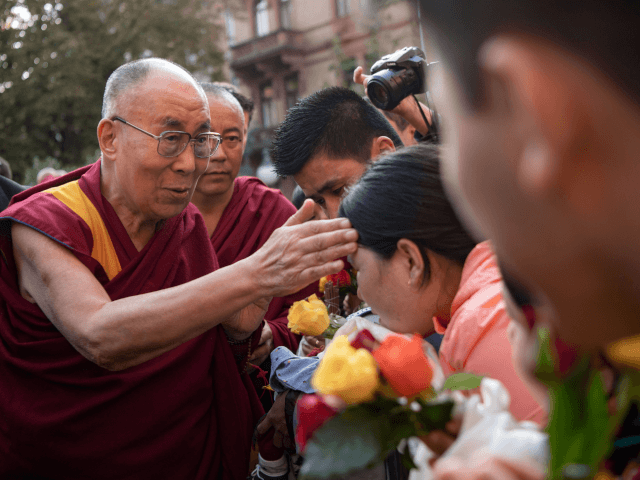A new book called Defining India:Through Their Eyes by Sonia Singh includes a conversation with the Dalai Lama in which he said India prevented him from meeting with Chinese Communist Party leader Xi Jinping in 2014, an excerpt published Wednesday revealed.
According to the Tibetan religious leader, India was apprehensive that a meeting with Xi could go poorly and aggravate the Chinese, but also worried the meeting could go well and become an instrument of Chinese propaganda.
The subject was raised when Singh asked the Dalai Lama about his relationship with Indian Prime Minister Narendra Modi. The Dalai Lama humorously described their dealings as “awkward” because he and Modi personally like each other, but India is perpetually nervous about its relationship with China and the Chinese regard the Dalai Lama as a troublemaker.
Singh was surprised when the Dalai Lama dropped the “political bombshell” that India nixed a potentially history-altering meeting with Xi.
“In 2014, when Chinese President Xi Jinping visited Delhi for talks with Prime Minister Modi, I requested a meeting with him. President Xi Jinping agreed, but the Indian government was cautious about the meeting, so it didn’t happen,” he said. The 83-year-old Dalai Lama has been living in exile in India since 1959.
Xi holds the minimally powerful title of “president” but, like in other communist countries, gets his power from being the head of the Party and commander-in-chief of the military, the People’s Liberation Army (PLA).
Singh wrote that Xi’s familiarity with Buddhism made a rapprochement with the Dalai Lama seem like a tantalizing possibility that could greatly improve Beijing’s relations with Tibet:
During his stint as a young provincial officer as well in 1982, Xi Jinping was posted in Zhengding, China where he backed a Buddhist monk’s efforts to rebuild the famous Linji Temple and has asked workers to study the partnership between party and religion. In 2014, in a speech in Delhi, the Dalai Lama had said that President Xi was the first Chinese leader to publicly say that Buddhism had a role to play in the preservation of Chinese culture.
However, a meeting between the Dalai Lama and President Xi could have also been used as a propaganda tool by the Chinese to outwit both India and the Dalai Lama, who is seen by some foreign policy strategists as India’s trump card against the Chinese. It’s not surprising then that the request for the meeting must have sent the ministry of external affairs into a spin leading to a denial of the request.
AFP on Wednesday asked the Dalai Lama’s spokesman to comment on Singh’s book, but he declined the opportunity to do so.
The Dalai Lama could become a flashpoint for India-China tensions upon his death because China has asserted the right to choose his successor, while the Dalai Lama insists he will be reincarnated as someone from a free country like India. This may lead to a situation where two people claim to be the Dalai Lama and India refuses to recognize the Chinese choice.
The government of Nepal, which is strongly influenced by China, on Tuesday announced an investigation of three journalists for merely circulating a news story about the Dalai Lama completing his hospital treatment for a chest infection.
“As the national news agency, we don’t carry news that is against the foreign policy of our country and affects the relationship with our neighbors,” the chairman of Nepal’s national news agency RSS explained.

COMMENTS
Please let us know if you're having issues with commenting.